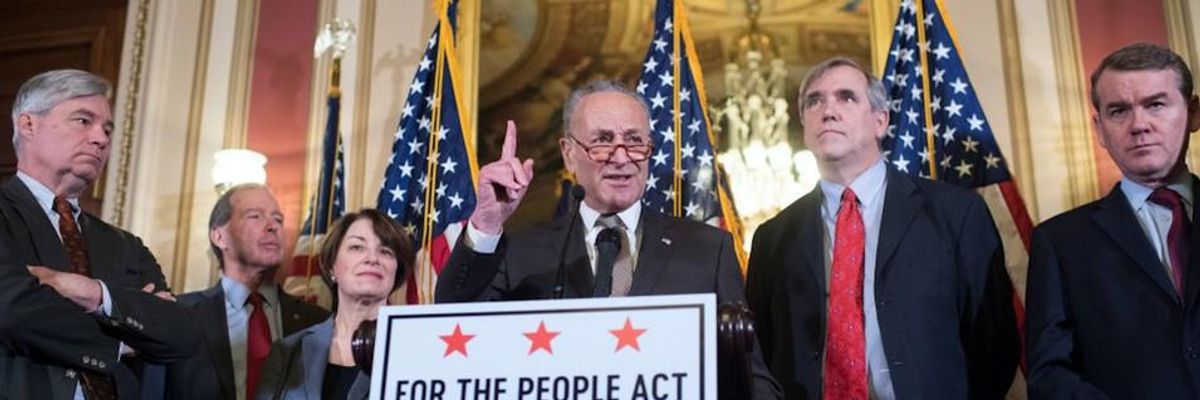Modern American democracy began in a hail of police batons and kicks on the Edmund Pettus Bridge in Selma, Alabama.
On March 7, 1965, 25-year-old John Lewis led 600 others to march for voting rights. They were met by a phalanx of state troopers in gas masks. The brutal police attack fractured Lewis's skull. Broadcast on television, the attack sparked a nationwide demand for action. One week later, President Lyndon Johnson went before Congress to propose the Voting Rights Act, declaring in the words of the protest song, "We shall overcome."
The filibuster has been used historically to thwart civil rights legislation. If we are serious about racial justice, we can't let that happen this time.
In years since, on the anniversary of Bloody Sunday, Lewis led lawmakers and activists on a pilgrimage to the spot where blood was shed. Last Sunday was the first such anniversary since Lewis's passing, amid the most significant attempts at targeted, racist voter suppression since the Jim Crow era.
Across the country, Republican legislators are rushing to enact restrictive voting laws. The push is especially flagrant in Georgia.
A new analysis by my colleague Kevin Morris takes a look at which voters would be most harmed by Georgia's proposed restrictions. Nearly 30 percent of Black voters in Georgia cast their votes by mail in 2020, and just 24 percent of white voters did so. But the majority of voters over 65 who cast their ballots by mail were white. So yesterday, the Georgia Senate voted to end no-excuse absentee voting for people under 65, essentially repealing vote by mail for non-senior citizens.
Georgia legislators also want to end early voting on the Sunday before Election Day. That's the day parishioners in Black churches traditionally vote. Sheer coincidence, no doubt. Lawmakers want to repeal automatic voter registration, too. They even want to make it a crime to give a bottle of water to someone waiting in line to vote.
Congress can stop these voter suppression laws, cold. It has the legal and constitutional power to do so. What it needs is the political will.
Last week, the House passed H.R. 1, the For the People Act, the most significant democracy reform legislation in at least half a century. It's the next great civil rights bill. The Senate must pass the For the People Act, and quickly, before redistricting begins to yield gerrymandered maps around the country. One way or another, this bill must find a way around the filibuster--by limiting it, creating an exception, or overturning it altogether. The filibuster has been used historically to thwart civil rights legislation. If we are serious about racial justice, we can't let that happen this time.
President Biden has already announced his support for the For the People Act and the John Lewis Voting Rights Advancement Act, which would strengthen the Voting Rights Act after it was weakened by the Supreme Court in 2013. Over the weekend, he demanded action on the For the People Act, calling it "landmark legislation." He also signed an executive order that will put federal agencies to work to expand voter registration and better educate Americans on voter registration and other election-related information. After an administration that peddled the Big Lie about our elections, Biden has put his White House firmly on the side of voters. And he did so on the 56th anniversary of Bloody Sunday--a day of extraordinary heroism and repulsive racism.
The brutal events of Bloody Sunday mobilized Congress to pass the Voting Rights Act. Fifty-six years later, we need Congress to restore it by passing the For the People Act and the John Lewis Voting Rights Advancement Act.

